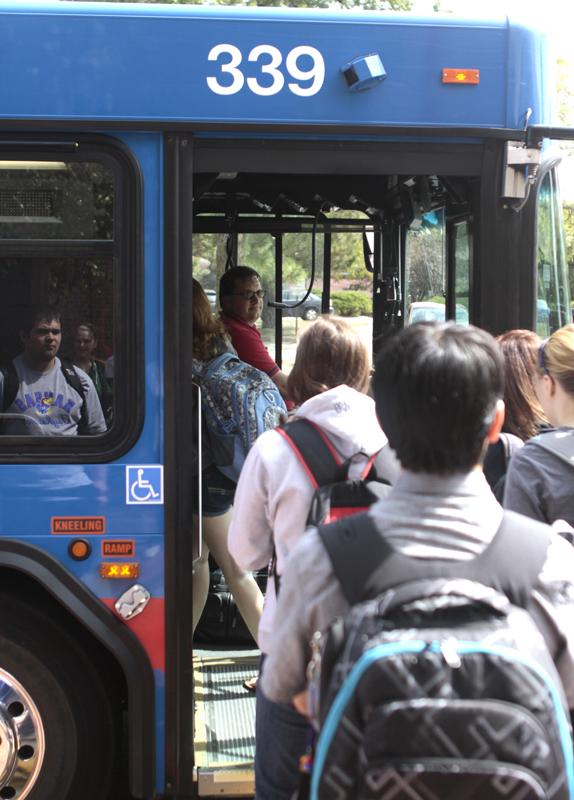
Columbia city officials and student representatives traveled to Lawrence, Kan., Friday for the second of a three-trip series exploring transit systems in Midwest college communities partially funded by student fees.
The group traveled Feb. 17 to Ames, Iowa, and the final trip to Champaign, Ill., is scheduled for March 9.
Students at KU pay an $87 fee for transit services, which funds approximately two-thirds of the transit budget. In comparison, students in Ames pay $62 while students at MU currently do not pay a fee.
The fee is decided every year by the KU student senate, which decides what the fee will be used toward. Graduate student Todd Oberlin said if a student fee were to be implemented at MU, a similar system should be put in place.
“If it is student money then the students need to be governing over it,” Oberlin said.
Oberlin is a member of the Tiger Transit Movement, a student organization dedicated to giving students a voice in the transit issue, and went on the Lawrence trip.
Oberlin said one good idea from KU was the SafeRide program the transit system uses. Every Thursday through Saturday night, buses pick up students from their apartment complexes and take them to places they want to go from the hours of 9 p.m. to 3 a.m.
One concern that has been expressed about Columbia’s transit system is the fact that though nearly 80 percent of the ridership is students, the “hub” where most routes pass through is located off campus at Wabash Station downtown. Oberlin said Lawrence has more than one hub and a majority of the routes pass by the university.
“Students can go anywhere, if you need to go to the store you just get on the bus and go to the store,” Oberlin said. “It’s really simple.”
Another thing Oberlin pointed out is the fact that their increased amount of buses, approximately 100 compared to Columbia’s approximately 30, allows for better service.
“If we got more buses, we could run more routes, employ more people and more people would use it, especially if it was designed for students,” Oberlin said.
Oberlin said during peak hours, students can get picked up by a bus every six minutes.
He also said the Lawrence transit situation is slightly different because of the history of its program.
“The student body really stepped forward, back in the ’70s, to keep a transit system going and because of that, the relationship they have now is really one of cooperation,” Oberlin said.
Oberlin said this relationship is enhanced because the city and university work through a mutual private contractor that controls the buses.
First Ward Councilman Fred Schmidt was unable to attend the trip because he was following up on a transit discussion in Columbia but offered some reasons he thinks the Lawrence system works.
“The bus has to go where students want to go when they want to go,” Schmidt said. “I’m sure that’s why it works well there.”
Schmidt said getting students to imagine that kind of system in Columbia and the advantages it would provide is key. Then the next steps are increasing participation and implementing some sort of fee.
“If it was a fee instead of a few buying a semester pass, we could have a fantastic system that people could depend on night and day, not just to go to school but to live life,” Schmidt said.